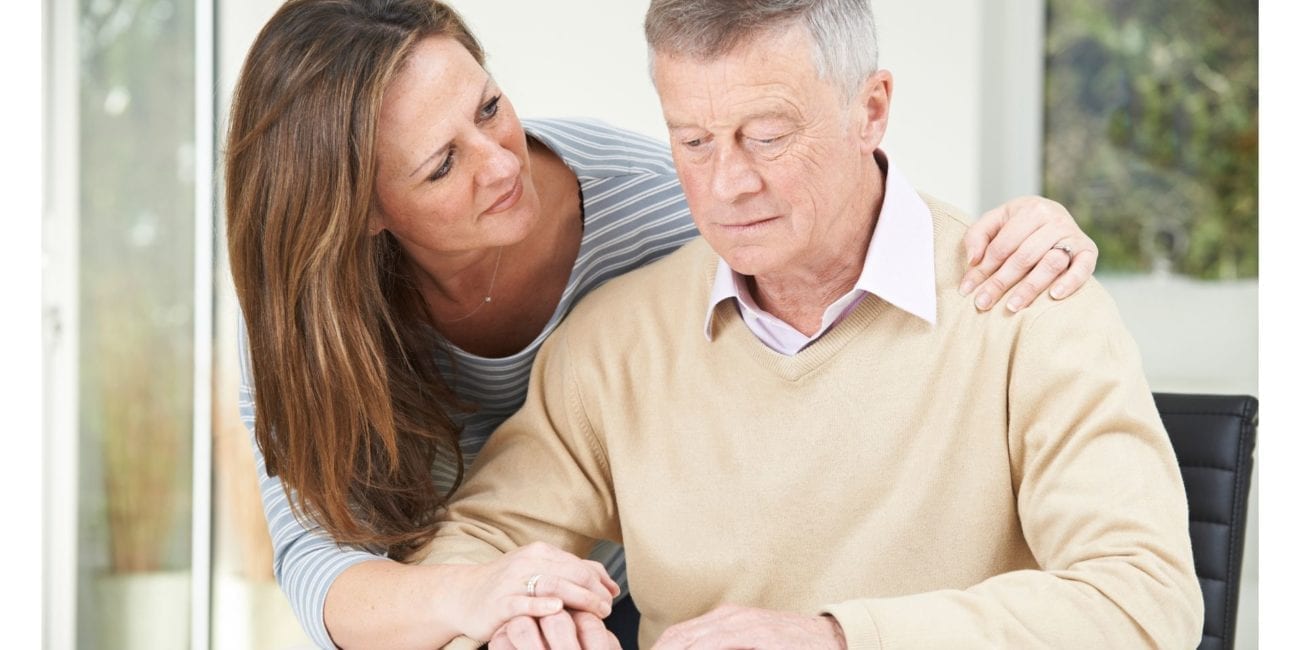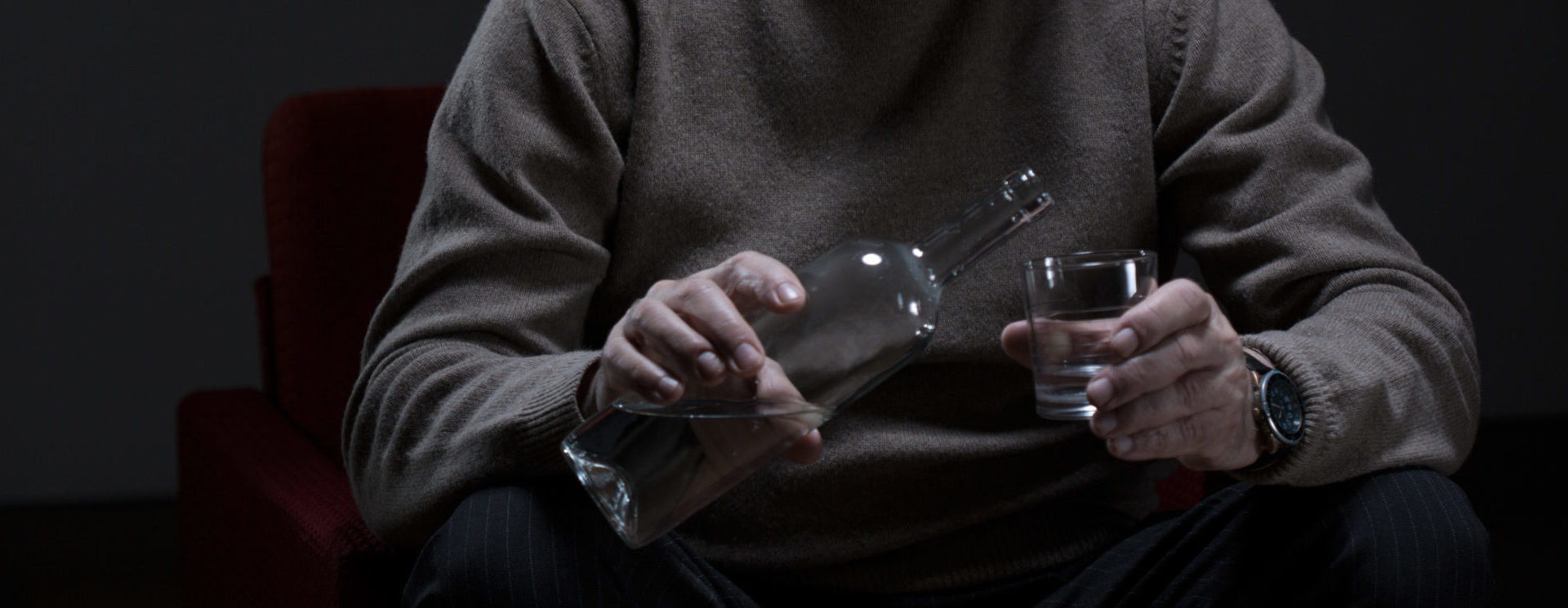Alcohol abuse starts innocently enough. Some seniors who previously never or rarely drank may turn to alcohol to deal with loneliness or aches and pains. Often though, because the body is less able to break down alcohol as we age, tolerance decreases among even the most seasoned of drinkers. The drinker may be enjoying the same amount they always have, and the shift to “too much” can be subtle, and easy to miss. This has led at least one study to conclude alcohol abuse among the elderly an “invisible epidemic.”
Alcohol strikes sooner, hits harder, and leaves later in seniors. This reality might be why the American Addiction Centers Organization estimates that up to 15% of aging adults succumb to alcohol addiction in their later years. Alcohol is by far the most commonly abused substance among those age 65 and up. The statistics are staggering: 1 in 40 seniors report heavy drinking (the act of binge drinking on 5 or more days in the previous month), while only 1.6% of seniors have been diagnosed with a substance abuse disorder. These data points paint a bleak picture. One of under-educating and under-assisting the aging adults in our lives.
The signs of abuse can be quiet. But on an older body, the effects can be drastic. With a keen eye, though, you can provide the help, empathy, and insight to help those you love the most.

How to Notice the Signs of Alcoholism
Addiction comes in all shapes, as vast as those who suffer from it. All of our bodies are different and reactions are complicated. An amount of alcohol that qualifies as a light buzz to some might be crippling to others, and it’s important to not register dependence by number of drinks. Instead, look for swings in the mind, temperament, and body of an aging parent. This shift, (or sometimes, drastic change,) is the key component to recognizing when an occasional one too many has tipped into substance abuse.
Aging.com lists the key addiction symptoms to look out for in aging adults as follows:
- Short term memory loss.
- Bloodshot eyes.
- Sudden fluctuations in weight.
- Becoming isolated from family and friends.
- Making excessive excuses as to why they are drinking (associating a substance with a direct cause).
- A change to a lethargic behavior, which may also signal depression.
Likewise, ask your loved one about their experience while drinking. Do they exhibit any of these interpersonal symptoms of addiction?
- Feeling guilty or ashamed about drinking.
- Needing to drink in order to relax or feel better.
- Blacking out during drinking.
- Regularly drinking more than intended.
If so, begin a casual conversation about the possible implications of these symptoms. No negative impact from their habit is too meaningless to address.
Your relationship with your own loved one will be key in diagnosis here, too. The changes might be unnoticable to a stranger, but to you, as plain as day. We can be our aging parent’s first point of contact on the path to recognition and recovery.

Supporting Your Loved One Through Alcohol Abuse Recovery
You will note that some of these listed symptoms are mental rather than physical. We should be attuned to how our elderly loved ones are feeling as much as we are occupied with their body’s health. It’s easy to be caught up in blood pressure readings and medication schedules. But if you have a free moment, consider taking some time each week to check in with your parent and ask them how they are doing on an emotional level. Simple affirmations of support can make all the difference and provide much-needed objective perspectives.
If you begin to suspect your parent may be suffering from substance abuse, it is important to act fast. Alcohol Use Disorder is a progressive, chronic disease that can escalate like any other sickness in an aging body. We can do our part by recognizing symptoms and assisting where we can, as soon as possible.

Ensure a Happy, Healthy Environment
On top of a natural tolerance decrease, many external causes can also trigger an increased consumption of alcohol. Keep an eye out for your aging loved one, and sympathize with what they may be experiencing as they transition into the next phase of their life. Their struggles are unique: Are they suffering from chronic health conditions inherent to growing older? Are they lamenting an empty nest? Are they grieving their peer network, either to relocation or mortality? Are they feeling purposeless? The first step to supporting an aging parent potentially suffering from alcohol abuse is to help reduce environmental triggers that might be pressing them towards self-medication.

Educate Yourself and Your Parent on Alcohol-Related Conditions
Excessive alcohol can cause health complications at any age, but it is particularly damaging on older bodies. Some of the common health problems whose onset is exacerbated by alcohol include:
- Diabetes.
- High blood pressure.
- Congestive heart failure.
- Liver problems.
- Osteoporosis.
These conditions, especially those related to blood and heart complications, can prove fatal in age-weakened systems.
Additionally, seniors are particularly vulnerable to the hazards of alcohol-induced dehydration. Many of them already suffer from dehydration in their daily lives as a result of insufficient daily water intake. This, combined with the fact that as we age, we naturally lose the capacity to retain water, can spell discomfort in the short-term and kidney function failure in the long-term.
This all might sound scary, but it’s important we phrase our conversations about these serious health concerns not in terms of potential death but rather small, steady lifestyle adjustments. Reducing alcohol intake can be just another slow piece of the aging process as our loved one adjusts to their new life. Some hobbies and social activities will be lost, but you can assist in their replacement with new, healthy alternatives to help ensure your parent can prosper well into their twilight years.
Educate Yourself and Your Parent on Medication Complications
Alcohol can be dangerous to an aging body on its own, but its negative impact can be amplified by health conditions and medications. One study found that 1 and 3 adults over age 60 consumed alcohol in quantities that risked harm in combination with their medication.
Medications can increase the temporary effects of alcohol—increasing potential injury. A lowered alcohol tolerance can mean inebriation will last longer than expected and contribute to falls and injuries upon bodies that are already fragile with age. Likewise, other medications may synthesize with the alcohol to produce a toxic chemical result. The National Institute on Alcohol Abuse and Alcoholism states that the most common medications that have dangerous interactions with alcohol include:
- Aspirin.
- Acetaminophen.
- Cold and allergy medicine.
- Cough syrup.
- Sleeping pills.
- Pain medication.
- Anxiety and depression medicine.
As a caretaker, we should be aware of our elderly parents habits and how they might interact with their medications. Arming ourselves and them with knowledge will help build solutions for potentially dangerous dependence.

Intervene When Necessary
Where affirmations and hard facts fail, though, intervention may be necessary. Don’t be alarmed; interventions are rarely the grave-faced portrayals we’ve learned from television. They are personal and painful, but they should strive to be cathartic rather than a brutal ultimatum. Choosing when to instigate an intervention is not a simple dilemma. An alcohol counselor or medical professional specializing in substance abuse can help you decide when it is time, and provide resources for how to approach such a difficult conversation.
This might sound like a miserable prospect for both you and your aging parent. Keep heart: an estimated 90% of individuals who have undergone a professionally staged intervention commit to seeking treatment, according to Recovery Worldwide’s Alcohol Rehab Guide. It’s worth the effort to confront the situation head on, using proven methods and professional guidance.
Once a connection is made and your parent is resolved to overcome their addiction, you will have set the foundation for recovery. From here, any elected mental health and rehabilitation treatment can take root.

Look Out for Yourself, Too
Sometimes, in caring for a loved one with any form of chronic disease, we may find ourselves pushed to the point of exhaustion. This exhaustion, in turn, can be compounded with the painful upheaved memories and decomposition of relationships that may occur when assisting an addict. Be sure to check in with your own mental health as much as you are assessing your parent’s. Surround yourself with counseling, support, and relaxation where applicable. Draining yourself too far will provide worse care for everyone involved. You don’t have to tackle this alone.
If you do think you are an island in your situation, make an effort to reach out. We have our own community here at Beverly’s Daughter, but there are plenty of outlets available to find a support network. Feel free to share your story on our Facebook Group—you might be surprised how many people understand, and have walked your path before. We’re all in this together.




Leave a Reply